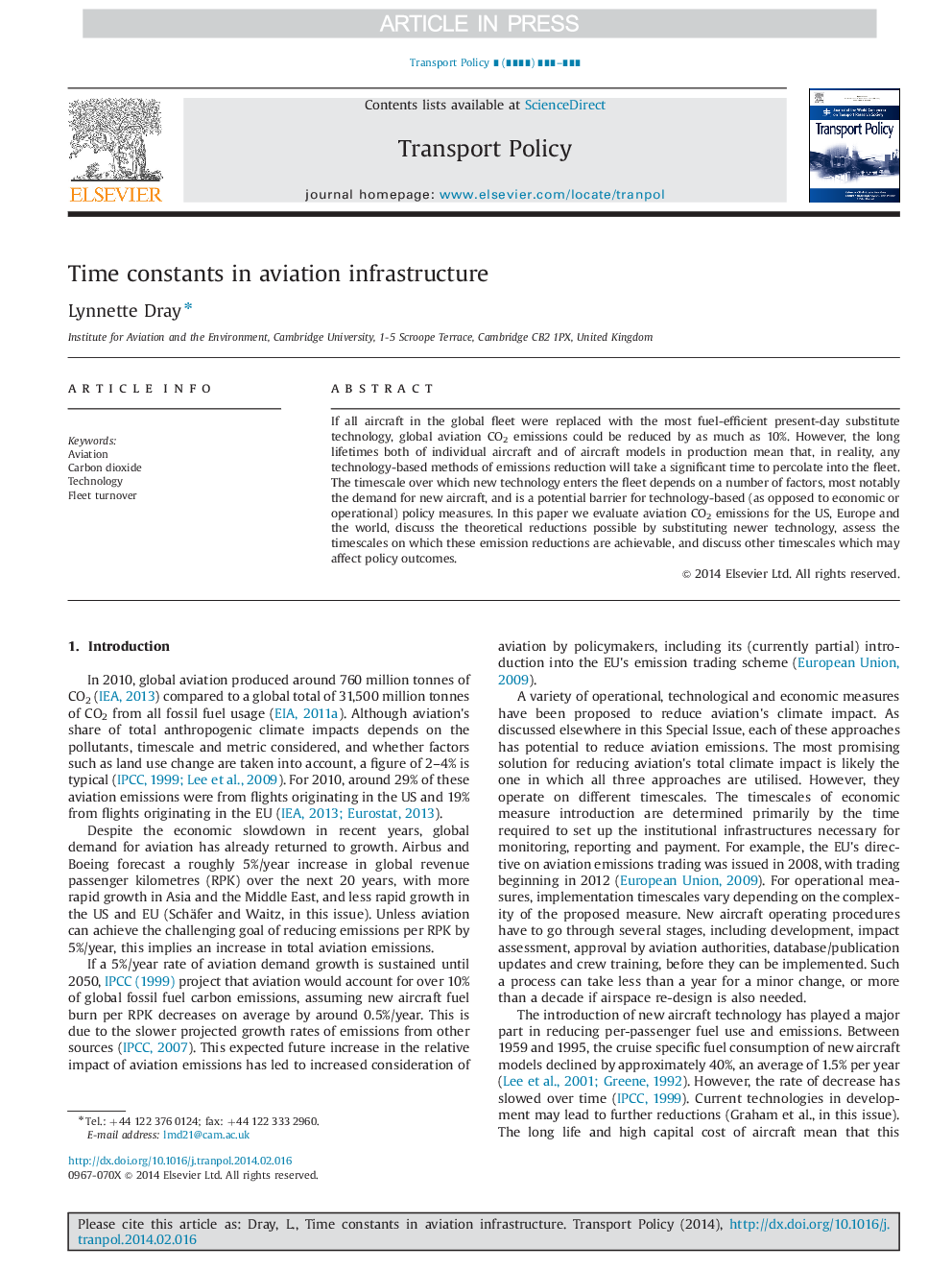| Article ID | Journal | Published Year | Pages | File Type |
|---|---|---|---|---|
| 7497910 | Transport Policy | 2014 | 7 Pages |
Abstract
If all aircraft in the global fleet were replaced with the most fuel-efficient present-day substitute technology, global aviation CO2 emissions could be reduced by as much as 10%. However, the long lifetimes both of individual aircraft and of aircraft models in production mean that, in reality, any technology-based methods of emissions reduction will take a significant time to percolate into the fleet. The timescale over which new technology enters the fleet depends on a number of factors, most notably the demand for new aircraft, and is a potential barrier for technology-based (as opposed to economic or operational) policy measures. In this paper we evaluate aviation CO2 emissions for the US, Europe and the world, discuss the theoretical reductions possible by substituting newer technology, assess the timescales on which these emission reductions are achievable, and discuss other timescales which may affect policy outcomes.
Keywords
Related Topics
Social Sciences and Humanities
Social Sciences
Geography, Planning and Development
Authors
Lynnette Dray,
